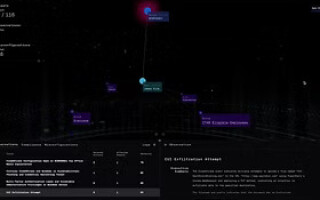UNIVERSITY UPDATE: Recent RPI acquisition ushers in quantum era on U.S. campus
StoryMay 16, 2024

In early April 2024, Rensselaer Polytechnic Institute (RPI – Troy, New York) and IBM officially unveiled the world’s first IBM quantum computer on a university campus. The IBM Quantum System One was lauded by university and company officials as key to helping the nation solve some of the world’s most complex problems, including those leveraging artificial intelligence and machine learning (AI/ML) in the military and defense realm.
The following week saw the introduction of the Defense Quantum Acceleration Act (S.4105/HR.7935), legislation aimed at stimulating the U.S Department of Defense (DoD) approach to quantum technology and advancing U.S. national security. At present, there are a handful of individual efforts in the quantum arena across the DoD, but the bill’s sponsors (Sen. Marsha Blackburn and Rep. Elise Stefanik) believe that the legislation will drive the DoD to maximize its resources and better unify the work on quantum computing at U.S. national research laboratories.
“Quantum’s impact on our national security will be considerable and we must take immediate steps to ensure the United States is the first nation to reach quantum advantage,” said Rep. Stefanik.
This bill – currently referred to the Senate Armed Services Committee – seeks to establish a framework for the DoD to optimize its approach to the development and transitioning of quantum technology by naming a quantum advisor to the Secretary of Defense to develop a strategic quantum roadmap and provide an independent budget assessment of current DoD quantum budgets to Congress, according to a DoD press release. The bill would also authorize a quantum technology testbed to enable the Defense Innovation Unit (DIU) to successfully investigate and promote near-term quantum capabilities, using the $55 million of funding it received in the National Defense Authorization Act of 2024.
Central to the U.S. government’s approach to and emphasis on quantum computing is an educated, informed, and well-trained work force.
During the RPI Quantum System One ribbon-cutting ceremony, RPI president Marty A. Schmidt stated: “RPI is building upon our longstanding collaboration with IBM to harness state-of-the-art computing to find solutions to global challenges, while training the next-gen workforce in quantum.”
Schmidt called out Curtis R. Priem – RPI Class of 1982 and vice chair of the Institute’s Board of Trustees – as the catalyst for RPI’s push into the research of and practical applications for quantum computing. Priem, the co-founder of computing giant NVIDIA Corp., pledged more than $150 million to establish RPI’s new Curtis Priem Quantum Constellation, a center for collaborative research that will prioritize the hiring of additional faculty leaders who will leverage the quantum computing system.
“I am extremely excited to support RPI as it moves into this important realm,” Priem said. “This investment will keep RPI at the forefront of technology and innovation, as well as lead the country in leveraging this powerful technology for the good of our nation.”
At the heart of the IBM Quantum System One at RPI is the 127-qubit IBM Quantum Eagle processor, with which the company has recently demonstrated the capability to perform utility-scale calculations. IBM defines utility-scale as the point at which quantum computers could serve as scientific tools to explore a new scale of problems that remain intractable for classical methods. (Figure 1.)

[Figure 1 ǀ Shown is a photo of the IBM Quantum System One quantum computer located in the Rensselaer Polytechnic Institute (RPI) Voorhees Computing Center, a former cathedral. It is the first IBM Quantum System One to be installed on a university campus. Photo courtesy RPI/IBM.]
A qubit, or quantum bit, is the basic unit of information used to encode data in quantum computing; enabled by the novel properties of quantum mechanics, qubits can store vastly more data than traditional bits, crack and/or harden cryptographic systems, and perform incredibly advanced computations that would take thousands of years for even classical supercomputers to complete.
As such, the hope is that they will be able to make massive, generational strides in such areas as AI, advanced materials, and space exploration.






